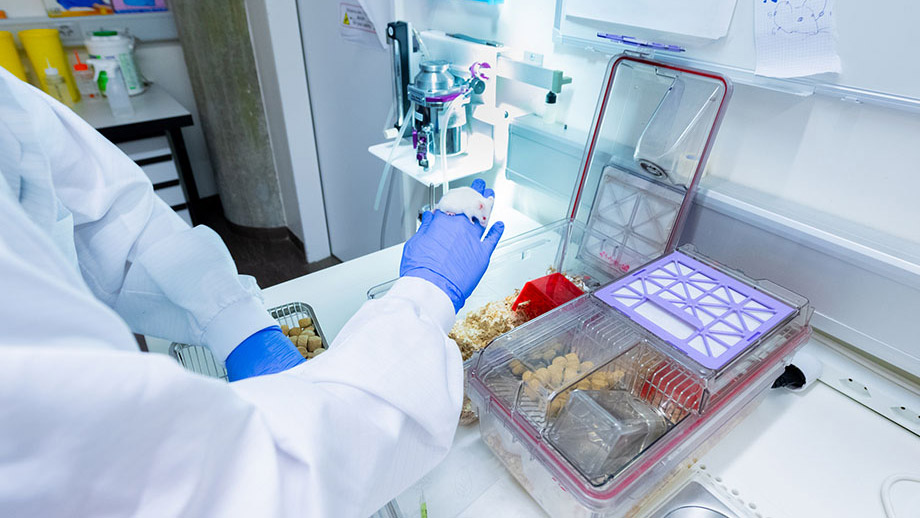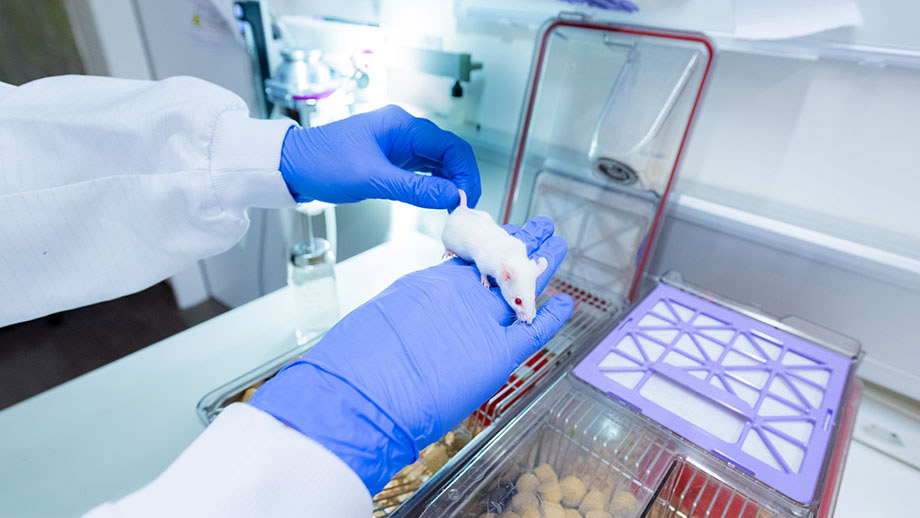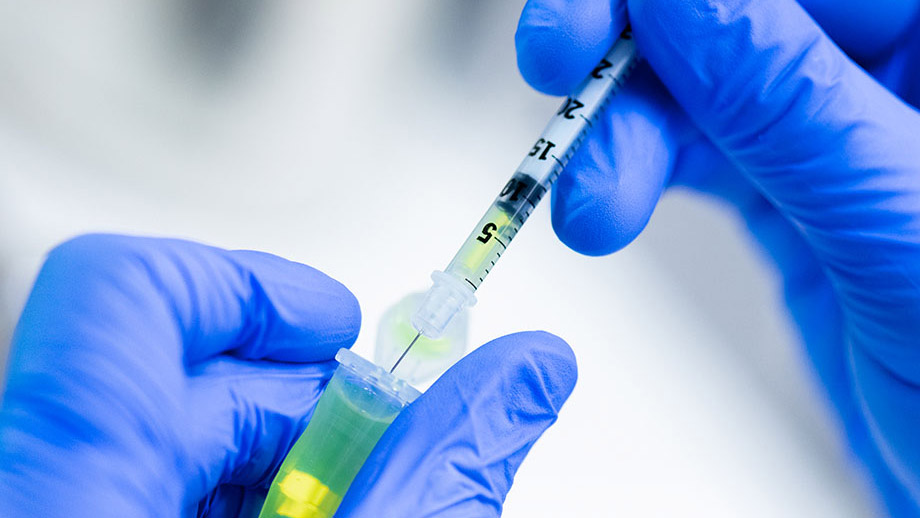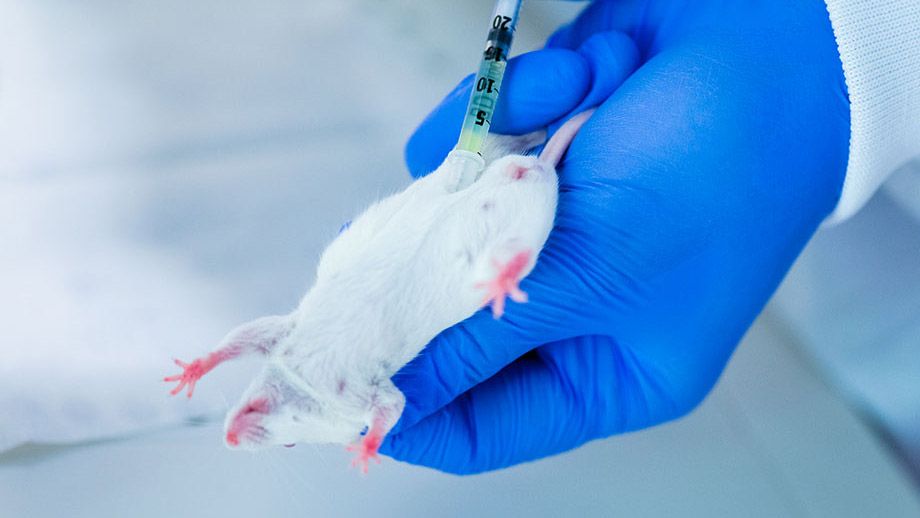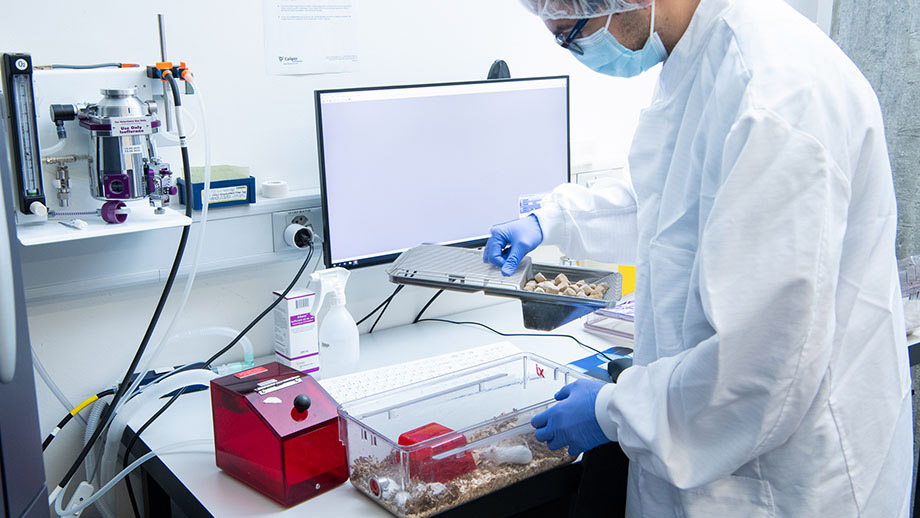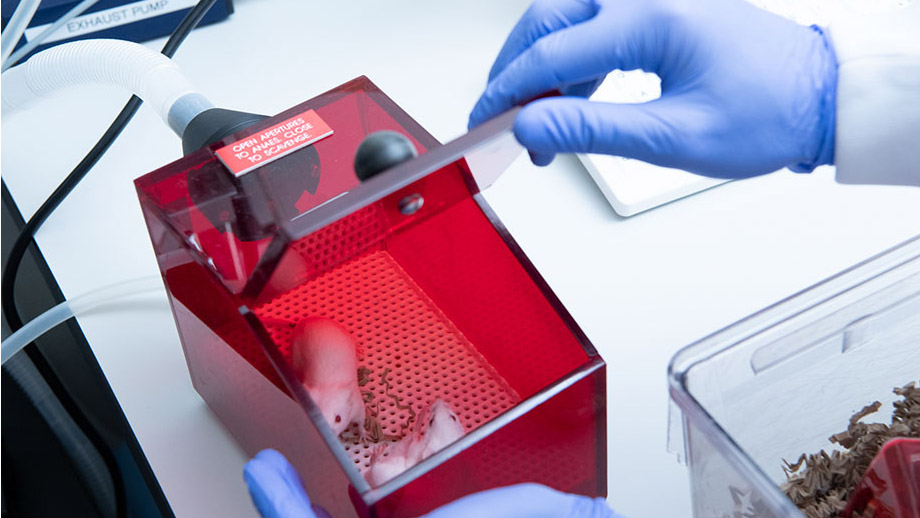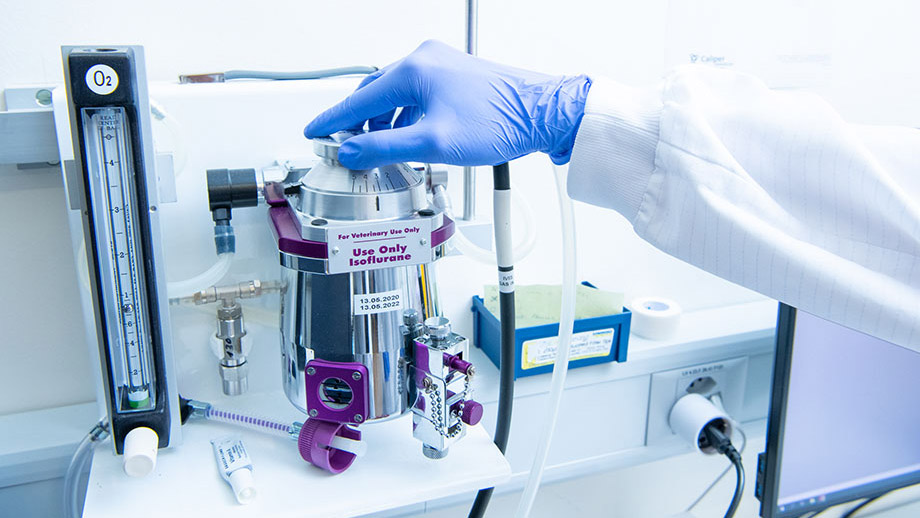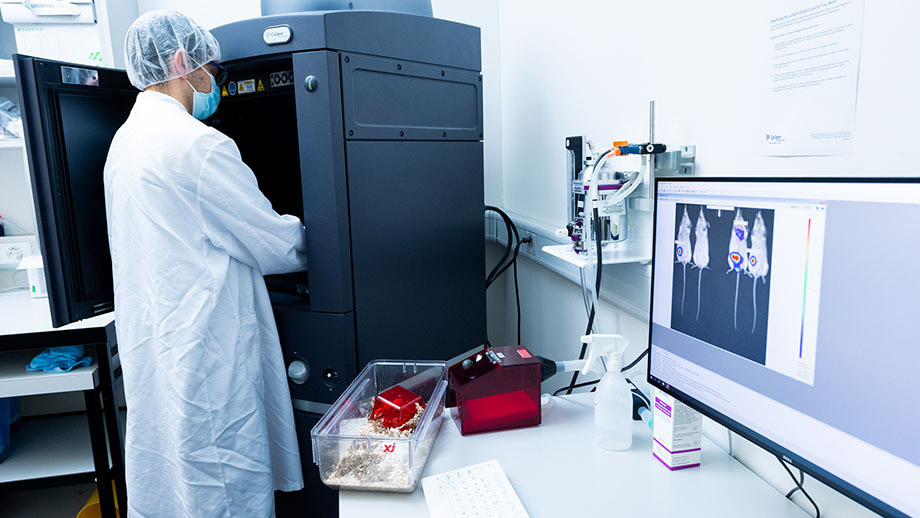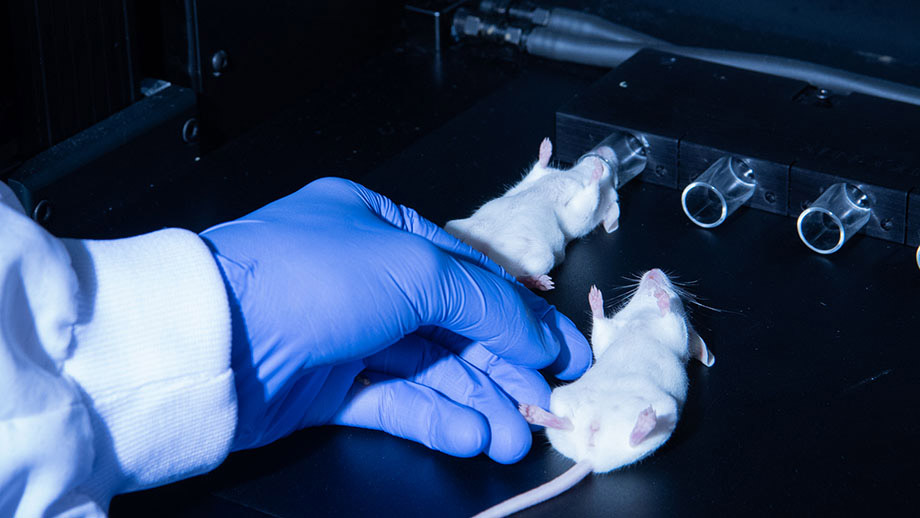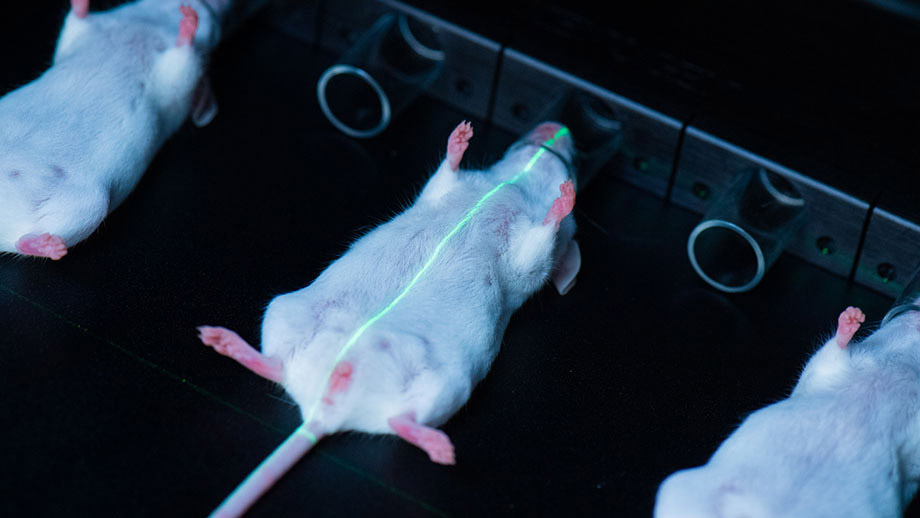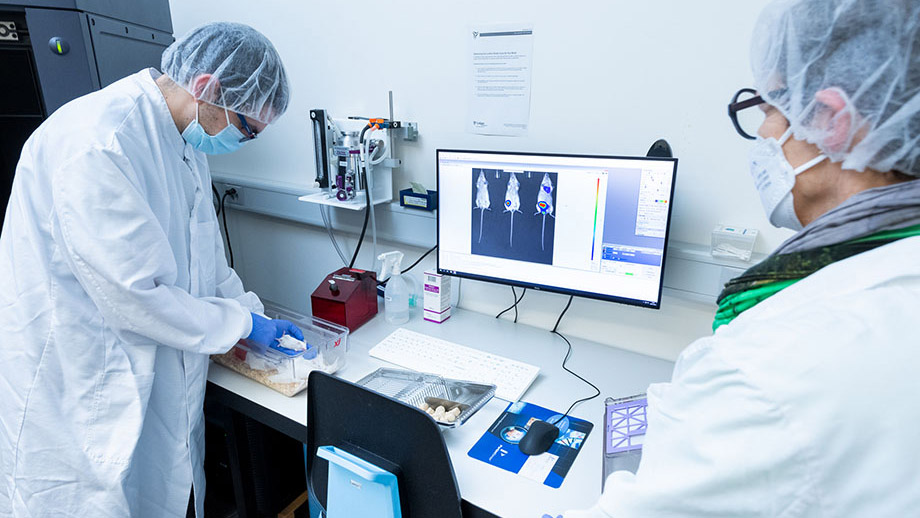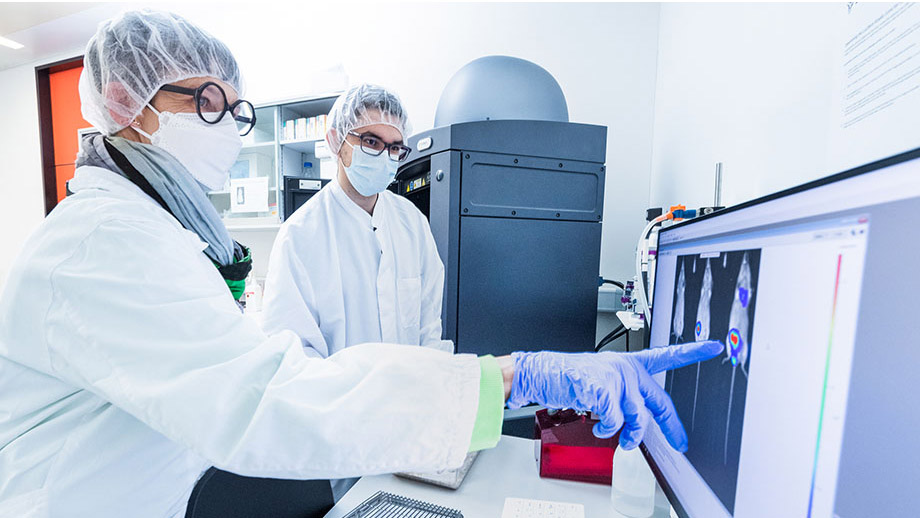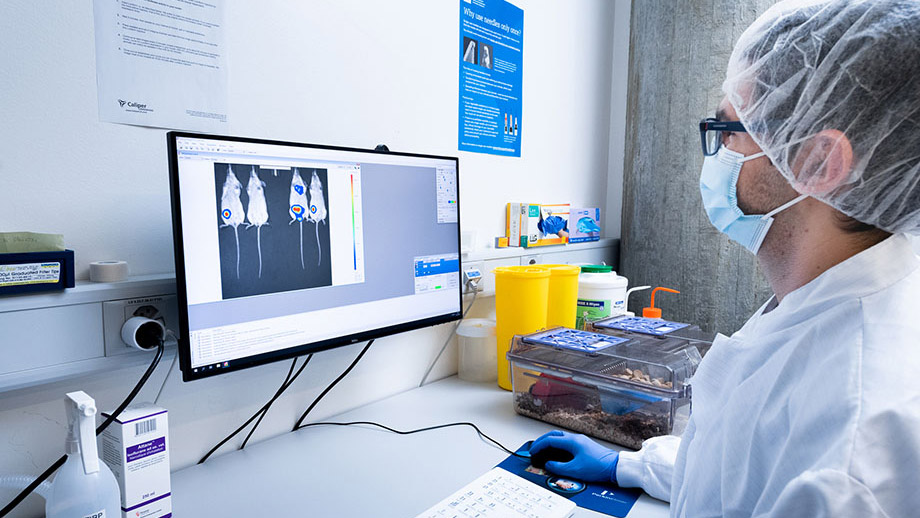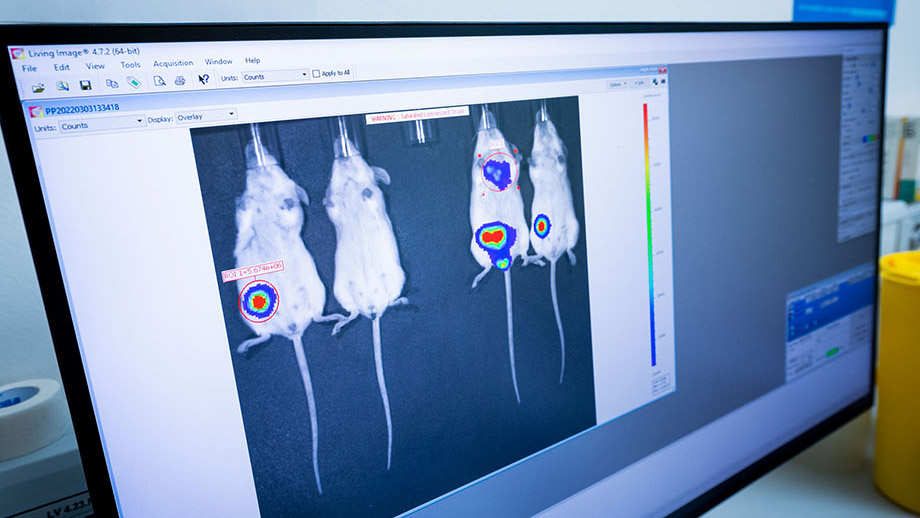Harnessing the Immune System to Restrict Breast Cancer Metastasis
Maries van den Broek and her team study how breast cancer metastasizes – and how this can be prevented. The immune system plays a key role in this process. The researchers use mice with breast cancer to discover how treatments for patients with metastasized cancer can be improved.
Breast cancer is the most common type of cancer in women. Affected women usually don’t die as a result of the tumor itself, but from metastasis, in which cancer cells break free and spread to other parts of the body. Such metastases are currently very difficult to treat.
Immune system influences breast cancer progression
The body’s own immune system plays a decisive role in breast cancer. Certain immune cells influence whether cancer cells remain dormant for years or suddenly metastasize aggressively. At the same time, the immune system also holds the key to effectively eliminate metastases. This is the case when immune cells are empowered to recognize tumor cells that so far escaped the immune response. The researchers aim to understand how immune cells can be empowered.
"Seeing" cancer cells in live mice
The group of Maries van den Broek investigates breast cancer metastasis in mice. Three weeks after inducing breast cancer, the mice develop lung metastases. Using a genetic trick, the researchers can “see” the tumors and metastasis in the live mice: The breast cancer cells are labeled with luciferase – the same protein that makes fireflies glow. The resulting bioluminescence can then be measured. The animals are anesthetized during the entire procedure. Since the mice experience slight constraints at most, the experiments' degree of severity is classed as 1.
Eliminate metastasis in the long run
The team uses mice to test how the size of the primary tumor and secondary tumors changes when individual components of the immune system are deleted or strengthened. This enables the researchers to discover which immune cells can restrict tumor progression. In a next step, the findings are validated in samples from human breast cancer patients. The project will contribute to a better understanding of breast cancer metastasis and help identifying novel therapeutic approaches.
